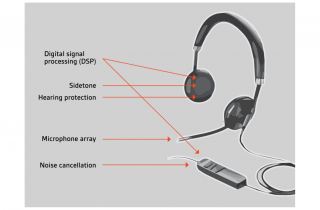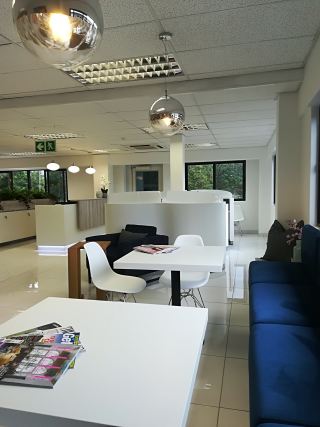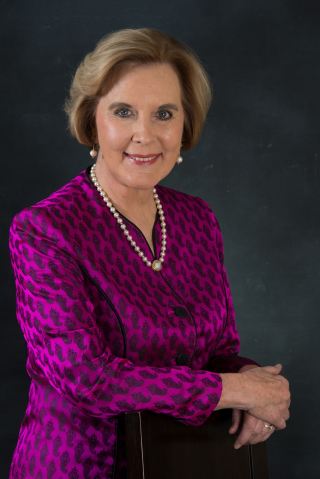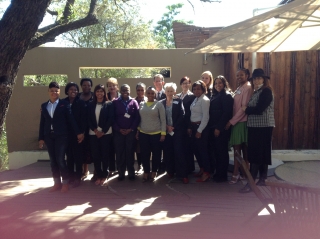How Persons with Disabilities Build Resilience in the Workplace
By Devan Moonsamy, CEO of The ICHAF Training Institute
Resilience is our capacity to recover from difficulties, our ability to bounce back from the problems we face. Psychologists are encouraging adults to foster resilience in children, as well as in themselves. It is highly applicable to persons with disabilities (PWDs) and to everyone in the workplace. If we have an attitude characterised by resilience, we will find it easier to cope with challenges, and not to succumb, but to surmount them. Adversity, trauma and tragedy affect us all from time to time, and we are also faced with stress on an ongoing or intermittent basis.
To illustrate how resilience is fostered, we can imagine the journeys we make through life. When we set out as young people, as a person in a new situation, or a PWD in the workplace, we need certain things for our journey. We need food and water (resources), and also a map (information), and a way to communicate with others (support). We need these things from the outset, and they need to be enough to keep us going on the right path over the long term. It is up to us to keep going on a daily basis, and not to become distracted or idle. But, if we are lacking in one or more of the three things mentioned above, we will struggle, lose stamina, and get lost. In such a case, we can fall down, not be able to get up, and then emergency and costly interventions are needed to save us.
So, while resilience is something that is built up by us inside ourselves, we still need assistance to get going and remain secure. Resilience is acquired through meeting adversity, but no one should be left entirely on their own. We should not wait for the person to be on their last before assisting. Our attitude should be one of ongoing supportiveness and encouragement. Otherwise, the results will be damaging.
People with resilience have what is termed an ‘internal locus of control’, which is a strong belief that they determine their fate, and not their circumstances. How they react to situations and what they achieve is up to them. They also often have one or more people in their lives who serve as mentors and good examples to them. This may be a parent, but not always. Some people with exceptional resilience come from difficult home circumstances, and they find mentors elsewhere, such as in the education space, their social environment, religious organisation, or in the workplace. Good resilience is also seen in the attitude that problems are a chance to learn, and not allowing them to control us.
However, in the face of great pressure, the resilience we have worked so hard to build up can fail us. A person with good coping skills may be overwhelmed by long-term stressors or a series of major losses. We all know that everything can tend to go well for a while, and then for some reason it all falls apart at once. For PWDs, this can certainly be the case as their health or other circumstances may take a turn for the worse. They may have been performing well in the workplace, but some employers are less understanding when they can’t anymore, which adds to their stress. Stress, in turn, further negatively affects their health and exasperates the situation. Then, family and friends may let them down, and their financial situation becomes constrained by high medical costs and/or a loss of income.
People in such situations thus really need understanding and help, and it is our duty to assist them in the workplace. It is unacceptable – and against the law – to exclude PWDs. It is wrong to add to their stress unnecessarily with unkind comments or behaviour. We must endeavour to help others build resilience or at least not break down what resilience they do have.
The struggle of those with disabilities, and of all humankind, is also against society’s oppressive, archaic ways of doing things, the ways in which it views and treats anything that is subject to it, and the ways in which it is acted out or resisted by individuals. As individuals we can seek either a brighter, more inclusive world for all, or try to maintain an existing but defunct system – it’s our choice.
The above is an extract from Racism, Classism, Sexism, And The Other ISMs That Divide Us by Devan Moonsamy, available from the ICHAF Training Institute and all leading books stores.
The book tackles contemporary issues in the South African workplace. It is an excellent guide for managers to harnessing diversity for success and overcoming diversity-related challenges.
Devan specialises in conflict and diversity management, and regularly conducts seminars on these issues for corporates. To book a seminar with Devan, please use the contact details below.
Tel: 011 262 2461 | Email: This email address is being protected from spambots. You need JavaScript enabled to view it. | Website: ichaftraining.co.za
The Employer’s Guide: Marijuana legalised… or is it?
With the Constitutional Court officially passing a judgment on 18 September in terms of legalizing the household use of dagga, the whole country seems to be in an uproar. What does this entail for employers in terms of still ensuring a productive and safe working environment for all?
We can expect that employers will now face a situation where some employees aim to take advantage of this situation and if reprimanded for unacceptable behaviour, employees might plead ignorance. For labour- and industrial relations, this new situation created by the judgment of the Constitutional Court does not affect the rules, policies or disciplinary consequences employees would face should they be found using dagga at the workplace, or arriving at the workplace under the influence of dagga.
Upon reading the judgment carefully you’ll find that the government now has 2 years to regulate this decision and officially write it into legislation. This means that any and all further regulations in terms of the quantities of private use, is yet to be determined. It is, however, vital that employers note that this judgment gave the green light to private use only, and that such use thereof is now decriminalised. Emphasis is placed on private use, as this means that employees may use dagga only at their homes. Should any employee report for duty and be tested positive for this narcotic (by use of observation reports; urine tests, etc.) or should they be found to use this while on duty, the employer still has the same measures of protection and remedies to his disposal as he would have had before the Constitutional Court’s judgment.
Employees must be informed that should they use dagga at home, they still have a duty to make sure that it would not be found in their systems when they report for duty and get tested. Should it appear that an employee arrives at work with this narcotic still in their system to such an extent that it can reasonably be expected to impact his ability to perform his duties productively, or that it could pose a safety risk to himself/other employees/the employer’s property, the employee can expect to be suspended pending a formal disciplinary hearing and a possible dismissal.
In order to avoid future situations where employees take advantage of this situation, employers are urged to have meetings with all staff members and inform them that even though private use is allowed, the rules and regulations of the company would still be followed. Furthermore, employers could implement a Zero Tolerance policy that would strengthen these rules and regulations.
Combating Body Type Discrimination in the Workplace
By Devan Moonsamy – CEO The ICHAF Training Institute
It happens at corporate parties, in social circles, and in the family – skinny, large, short, tall, or somehow different from the ‘ideal’ others have in mind leads to body shaming.
It’s not just against others, however. Consider: what’s the thing you like least about yourself? Most likely it’s related to your appearance. We are unreasonably hard on ourselves and others in this way.
Knowing the stresses weighing on people today, why do we still have such high expectations? Perhaps two main reasons are that we lack awareness and that we are ‘trained’ by the media and society from a young age to criticise ourselves and others.
Advertising and celebrity culture are much to blame. Idolised body forms are daunting, and they are highly exploited in the media. Society thus pressures us to ‘be’ this or ‘be’ that. We need to choose to defy these unrealistic notions and help others feel comfortable around us, no matter their physical characteristics. A world of diversity is much more interesting, valuable and productive than a world of carbon copies.
Let’s look at this problem from the inside out through an example of what is really happening for people who are body shamed.
Mandisa grew up in a home where there was little money, even for food. She begged on the streets for something to eat from a young age. Often, the only time there was happiness at home was when there was food on the table. Her parents could be abusive, but never when there was food. As a result, she developed a difficult relationship with food without realizing it. Mandisa began to see food as a comfort, as a sign that all was well with the world, and that she could relax and not be afraid.
Mandisa developed a sugar addiction, and although she knows people judge her for her weight, she can’t help turning to food because she sees it as a source of security, sometimes her only friend. Like other people whose bodies don’t fit what people believe is ‘attractive’, she is painfully aware of it. Her husband tries to hide food away from her, but this only makes life more difficult, and she starts to eat in secret, further marring her relationship with food.
One day at work, in front of her, Mandisa’s boss tells someone to move some equipment around because she has some difficulty getting past it as she is ‘a heavy lady’. Mandisa is humiliated and rushes to the bathroom to hide her tears.
Mandisa’s boss didn’t mean to insult her, but at times people aren’t even aware that they are ‘fat shaming’. How might Mandisa’s boss have handled the situation with more tact? And, what could her husband do to help her?
People are highly critical about body types, likely because we are such visual creatures. We are swayed by what we see, and we often fail to find out more about a situation.
People may say that it’s good to be strict with others and that we have a duty to warn them about their being overweight for health reasons. Being extremely thin is also unhealthy, and can indicate an emotional problem. So aren’t people justified in pointing it out and telling the person to change their eating habits? When people do manage to do this, they are highly praised, even used in advertising to sell products. Those who don’t are often ostracised.
A critical question is: what do we do when we see someone isn’t responding to ‘advice’ to change their body? Do we nit-pick at the issue or treat the person badly? Some people may even punish the person for not complying. But does this really have any chance of helping them when they are already fighting a battle against an underlying health problem they may not even know about, battling stress and emotional scars, or their weight has changed because of medication, allergies, surgery or for many other reasons?
If you are struggling with these problems, and they are affecting employee satisfaction and performance in the workplace, it needs to be taken very seriously and addressed. Racism, Classism, Sexism, And The Other ISMs That Divide Us delves into these issues and offers practical solutions to problems surrounding body diversity, as well as other diversity issues which can hamper organisational progress and cause deep hurt to individuals if not handled with care.
The book looks at overcoming instant separation magnets (ISMs) in the South African context, and how to manage diversity so that everybody wins. The aspects of diversity are considered in detail with real examples and practical information on dealing with and preventing diversity-related problems.
Racism, Classism, Sexism, And The Other ISMs That Divide Us helps readers bring about transformation in their everyday dealings and in their organisations. It is useful for managers, HR departments, corporate trainers, strategists, students, and anyone facing situations of diversity which require strategic and prudent interventions. It helps in inspiring positive change, changing mindsets, and transforming the status quo for the better of all.
Racism, Classism, Sexism, And The Other ISMs That Divide Us (ISBN: 978-0-620-80807-1) by Devan Moonsamy is available from the ICHAF Training Institute.
Tel: 011 262 2461 | Email: This email address is being protected from spambots. You need JavaScript enabled to view it. | Website: www.devan-moonsamy.com www.ichaftraining.co.za
KEEPING EMPLOYEES ENGAGED STRENGTHENS AN ORGANIZATION
It’s never been more important, and perhaps more difficult, for people to be engaged in their work. Things move fast. People have the flexibility to work when they want, often outside 9 to 5. And they’re working everywhere: in the office (where it can be noisy and filled with distractions) and out of the office (where it’s often even harder to focus). But when people are engaged, it usually means they’re happier. Plus, engaged employees outperform their peers in terms of productivity, sales, energy levels, healthcare savings, and lower turnover rates.
SMARTER WORKING HELPS PEOPLE BE AT THEIR BEST
The Smarter Working approach can help an organization enhance some of the factors that contribute to employee engagement and happiness.
First, it’s essential that people have a choice of workspaces within their workday such as places to collaborate, unassigned desks, quiet spaces, or touchdown areas. Second, they need the right communication tools—those designed for them—to use seamlessly throughout their day. This has a wonderful effect. People can embrace their own work style, the way they work best. They feel like the company is listening to them, they’re more satisfied with their job, and they are more likely to stay. So, there is a greater sense of belonging, which promotes a culture of trust. This means they enjoy more independence and have more control over their day. This kind of supported autonomy breeds engagement for employees and creates a company others will want to join.
WITH SMARTER WORKING, THE TALENT POOL WIDENS
When companies adopt a Smarter Working approach and provide an array of workspaces and communication tools, there is an additional (and big) advantage: the opportunity to recruit the best people, wherever they may be in the world. Because just like a great idea can come from anyone, great talent can come from anywhere.
A MORE SATISFIED WORKFORCE CONTRIBUTES TO BOTTOM-LINE PERFORMANCE
With Smarter Working, people have the tools and freedom to contribute to the company’s success in their own unique ways. This is gratifying and provides a real sense of fulfilment. And that matters because employee satisfaction and productivity are closely tied to financial success.1
In South Africa, Plantronics promotes Smarter Working concepts through its team members, authorized distributors and partners. Read more about Smarter Working https://www.plantronics.com/za/en/smarter-working
About Plantronics
Plantronics is an audio pioneer and a global leader in the communications industry. We create intelligent and adaptive solutions that support our customers’ most important needs: experiencing and facilitating simple and clear communications while enjoying distraction-free environments. Our solutions are used worldwide by consumers and businesses alike and are an optimal choice for open office environments. From Unified Communications and customer service ecosystems, to data analytics and Bluetooth? headsets, Plantronics delivers high-quality communications solutions that our customers count on today, while relentlessly innovating on behalf of their future. For more information visit www.plantronics.com/za
1 ”When the walls come down,” Oxford Economics, page 9. 2 ”The Engaged Workplace,” http://www.gallup.com/services/190118/engaged-workplace.aspx.
What does it take to hear and be heard in the workplace?
Approximately 15% of the world’s population has some degree of hearing loss, as recognized by the World Health Organisation, WHO. In Sub-Saharan Africa, slight impairment (defined a 26-40 dB) tracked at just over 14% (1). Fostering a corporate climate which promotes the inclusion of differently-abled workers into the workplace, which can include the right environment and equipment to support workers considered hard of hearing, is not only a compliance requirement in many countries across the world, but in some circumstances can also help to improve productivity.
Noise has always had the potential to distract people from the task at hand. Today, changes in the workplace have introduced new levels of noise that were absent just a few years ago. Effective noise management is now a business imperative that extends from inside the office walls to anywhere work happens.
Noise management in the office begins with acoustics. The first step is to look over the workplace to determine what can be done acoustically to improve the environment. Consider where different groups of workers are located, and assess whether each group’s communications needs are helped or hindered by their specific location. Where noise is a problem, the following best practices has the potential to enhance acoustic performance, whatever the office environment:
Best Practices to Consider:
- Specialized materials on floors, walls and ceilings minimize noise. For example, covering bare floors with carpeting is an essential step for reducing noise.
- Vertical barriers limit sound travel across an open-plan office. Consider placing divider panels between affected areas.
- Computer-generated sounds mask unwanted noise. Many companies pipe in background noise, or allow people to listen to music to block sound.
- Introduce headsets to block out background noise wherever it occurs and help users enjoy higher quality communications.
Plantronics headset technologies build on the noise protection provided by other acoustic best practices and our headsets are backed by extensive development and testing facilities, plus over 50 years of audio engineering experience. The Plantronics range offers a variety of headset technologies, including:
- Noise cancellation: Plantronics achieves optimum results using active and passive noise cancellation at both the transmission point (what you hear) and reception point (how you sound).
- Digital signal processing (DSP): DSP in Plantronics headsets produces a more natural voice sound by applying specialized algorithms to digitized voice signals.
- Sidetone: This feature provides out-of-band feedback in real time to let people know how they sound to the listener or listeners on a call.
- Microphone array: Using multiple microphones in a single device delivers exceptional sound clarity.
- Hearing protection: Plantronics SoundGuard technology helps to ensure that loud tones are quickly reduced to more comfortable levels, using a sophisticated three-stage process to protect users from sudden increases in sound levels.
Current industry trends are driving the need for improved noise management. Covering calls from desk phones, PCs and mobile devices, Plantronics offers a range of corded and wireless audio solutions that enhance the audio experience for business customers. To find out more about different solutions available in South Africa, please get in touch with a local authorized distributor at www.plantronics.com/za
Plantronics is an audio pioneer and a global leader in the communications industry. We create intelligent and adaptive solutions that support our customers’ most important needs: experiencing and facilitating simple and clear communications while enjoying distraction-free environments. Our solutions are used worldwide by consumers and businesses alike, and are an optimal choice for open office environments. From Unified Communications and customer service ecosystems, to data analytics and Bluetooth headsets, Plantronics delivers high-quality communications solutions that our customers count on today, while relentlessly innovating on behalf of their future. For more information visit www.plantronics.com/za
© 2018 Plantronics, Inc. All trademarks are the property of their respective owners.
(1) MBD, WHO, 2011 DHL estimates as reported within, WHO global estimates on prevalence of hearing loss Mortality and Burden of Diseases and Prevention of Blindness and Deafness, WHO, 2012
Regus supports Business Growth in Pietermaritzburg
Regus, the multinational workplace provider, opened their most recent business centre in the Kwa-Zulu Natal capital, Pietermaritzburg on 1 December 2017. This adds to their 3000 locations worldwide and over 55 locally. The new Pietermaritzburg centre which offers fully furnished office spaces, co-working spaces, and meeting rooms, follows a strategic focus to provide world-class workspaces and infrastructure in oft-forgotten areas.
Since its expansion into South Africa, Regus has provided co-working and meeting spaces to meet the increasing demand for flexible, technologically advanced, professional work areas. The latest centre will support corporates, small businesses, start-ups, entrepreneurs, students, freelancers and business tourists with a professional place to work and network. As a hub to the aluminium, agricultural, manufacturing and tourism sectors, and with its proximity to Durban, one of the busiest ports in Africa, Pietermaritzburg is also an ideal platform for expansion into the rest of the province.
The location is home to the thriving and active Pietermaritzburg Chamber of Business, supporting local businesses in the area. The new business centre is also ideally situated in the busy Bird Sanctuary area, with access to banks, local businesses, restaurants and food outlets.
Joanne Bushell, Country Manager of Regus in South Africa said of the expansion, “The most recent Regus locations were strategically chosen to support areas in our country integral to the agricultural, manufacturing and services growth, but which often don’t have commensurate support of much-needed technological infrastructure and services. We have seen our business centres boost economic growth in all the locations where we put down our footprint.”
With more centres set to open in South Africa in 2018, Regus’ business support footprint is steadily growing to include centres nationwide. For further information on Regus business centres, to find a global working environment near you, or to find out how we can support growing your business, go to www.regus.co.za or call 0860 600 250.
How to manage your career in a corporate crisis
Your company is embroiled in a reputational crisis of such magnitude it could bring down the business and with it your previously stellar career as a senior executive… what do you do to protect your own good name?
It’s no idle question. Some huge organisations – from BP to Ford to Volkswagen to KPMG – have recently been in the reputational crosshairs and in the era of non-stop communication, whistle-blower hotlines and tighter regulation more will follow.US estimates indicate 19 out of 20 US companies are unprepared or under-prepared for the management of reputational crisis.
Even the PR kingpins at Bell Pottinger appeared totally taken aback when scandal erupted on their own doorstep.We can therefore assume most local firms are at least under-prepared and so are their top executives.However, some lessons have been learned over the years and broad guidelines put in place; though they generally relate to corporate rather than individual executive responses.In many instances, however, advice to corporates can be reworked into advice for individuals.Among tips for corporates is to anticipate crises, conduct an audit of ‘vulnerabilities’, have a plan in place ahead of time along with agreed procedures, nominate approved spokes-people, brief them on what may or may not be said, and try to appear helpful and ready to communicate rather than go to ground.Individuals can follow a similar strategy.Personal vulnerabilities are shaped by executive roles and divisional responsibilities.
So, if you are CFO, make sure you are exceptionally well informed on hot financial media issues (e.g. transfer pricing or base erosion profit shifting across borders).If your division engages in activities that might cause pollution, make sure you are on top of all environmental developments, while insisting on rigorous controls.Prudent personal preparation includes reinforcement of your own reputation for ethical dealing.Don’t simply talk the talk. Walk the walk. Make good ethical practice an integral part of your approach to your work and personal conduct.Involve yourself with initiatives undertaken buy professional and industry bodies to strengthen ethical standards. Include in your personal network any industry figures, academics or professionals known as good governance champions.
Tap these ethical gurus for updates on latest practice.Speak on ethical issues on industry occasions, though this just might boomerang if your company is caught red handed.Remember, if you are on the Exco, you are accountable. Senior executives are frontline PR people, like it or not.If you are confronted by difficult questions (from media or staff) don’t become defensive.
‘No comment’ is code for ‘We’ve something to hide’.You could perhaps say the issue is under review and nothing can be said until enquiries are complete.Maintain communication with staff, suppliers and associates, even if you can only generalise and request patience.
Refusing to take calls does not help.When communicating – even privately or via social media – never impugn your own organisation.You can say you share public concern and indicate sympathy for those affected by the alleged lapse in standards, but joining the chorus of criticism strikes the wrong note and positions the executive as a turncoat.As the crisis unfolds, the executive has to face a critical question: Do I resign or stay? The answer depends on the nature of the scandal, the degree of perceived involvement, the reactions of corporate and industry peers, and perhaps professional and legal advice.If an individual is well known as a fair, honest and ethical professional, damage limitation is possible, though even totally innocent parties can be tainted by association to some degree.Individuals may face extra scrutiny from their peers, investors and prospective employers.
A well-prepared executive with a sound personal reputation should be able to withstand the scrutiny, though living with the aftermath of scandal can make huge demands on those concerned.Executives who cope best are those who know their consciences are clear and did everything possible to uphold ethical standards.
WHERE ARE SOUTH AFRICA’S POTENTIAL WOMEN DIRECTORS?
They are in South African companies and industries right now, although they may not be part of traditional networks and are unlikely to be present at the higher levels of management in the same numbers as men. It is for this reason that BPW SA and the Department of Trade & Industry (the dti) have partnered in an unrivalled “Women on Boards” director development programme to create a pool of female leaders in SA who are excellently trained and are therefore highly sought after by Boards.
Most people today have no knowledge about the makeup of corporate boards, even in the companies they work for. These people would be surprised to learn how little diversity of thought and experience exists in the corporate boardrooms and executive suites of South African businesses. Why should you care about board composition? Boards of directors make decisions that can impact you, your community, and the country. That’s why it’s important that membership on corporate boards be representative of a company's constituents.
Boards of directors choose CEOs. They make decisions about executive compensation, whether to buy, sell, or merge with other companies, where corporate offices close and relocate, and how much priority a company gives to issues other than profits, such as social responsibility.
Our Women on Boards programme will give you the expertise and exposure needed to be part of the right networks. It is an eight-part program — strategically placed over the course of 8 months, due to the complexity of the material — equips women with the knowledge and tools needed to elevate themselves to the C-suite and beyond. In a supportive and highly interactive atmosphere, an impressive roster of top government and corporate experts will guide skilled female executives through a rigorous program of intensive classroom instruction, case studies and simulations. Every element of the program is focused on strengthening and broadening the leadership talents of the participants and delivering positive results for their companies and organizations. They will improve their understanding of the responsibilities of board membership and develop the skills and strategic insight needed to become a more effective director. They will improve their understanding of board governance while heightening their financial literacy and increasing their understanding of relevant legislation. Amongst others, specialist training is also provided by the Johannesburg Stock Exchange (JSE) with regard to corporate governance and understanding of JSE terminology and the Commonwealth Business Council (CBC) (London) who will impart their expertise on personal and reputational risk. The dti will convey their expectations of board members and corporate experts will present, and execute simulations, on media and presentation skills to enhance leadership effectiveness. The programme is certified by the dti.
For more information, please visit our website at www.bpw-jhbsa.co.za .or contact This email address is being protected from spambots. You need JavaScript enabled to view it. or 011 794-4991.







